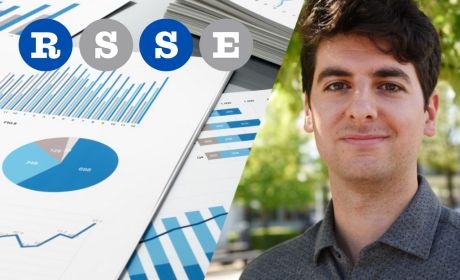Emir Efendić (Maastricht University) 3.4.2025
V rámci Research Seminar Series in Economics máme tu čest, že nám ve čtvrtek 3.4.2025 od 12:45 do 14:15 v místnosti RB437 bude přednášet Emir Efendić (Maastricht University) o „The value of response time: a simple algorithm to extract wisdom from uncertainty”.
Registration is not required and anyone who would like to attend is warmly invited.
It is also possible to participate online via MS Teams at this link. In case of any connection issues, please contact lubomir.cingl@vse.cz.
ABSTRACT: People naturally infer information from others’ response times (RTs). RTs can signal doubt, cognitive effort, and strength of preference. Additionally, RTs have been linked to accuracy, particularly in domains like witness identification and medical decision-making. In this talk, I will present evidence that RTs can be leveraged to identify and select accurate responses from a crowd. Drawing on data from general knowledge questions, medical diagnoses, estimation tasks, and forecasting, I will demonstrate how a simple selection algorithm based on RTs can yield highly accurate outcomes. Specifically, I will show that a “follow-the-fast” approach—selecting the response of the quickest individual—consistently outperforms random selection, choosing the best past performer, or relying on the slowest responders. This selection method is particularly valuable in situations where traditional crowd aggregation is impractical, such as when responses cannot be easily categorized. However, when crowd judgments can be aggregated—such as in numerical estimation—combining the answers of a small group of the slowest responders (e.g., five individuals) can surpass the accuracy of a much larger crowd (e.g., 100 people). This effect arises because slower responders tend to provide more independent judgments compared to faster ones. Overall, I will highlight how this simple, observable RT cue can serve as a powerful tool for identifying accurate responses, offering practical implications across various decision-making domains.
BIO: Emir is a psychologist working mostly in the domain of judgment and decision-making. In his research he investigates a wide-range of topics focusing, in general, on how people make decisions, what impacts their choices, and finding ways to improve decision-making. He is an assistant professor at Maastricht University’s School of Business and Economics in the Netherlands. Lately, he is interested in how people judge decisions made by algorithmic systems, how people navigate risky prospects, and developing simple algorithms to extract accurate information from crowd judgments.
